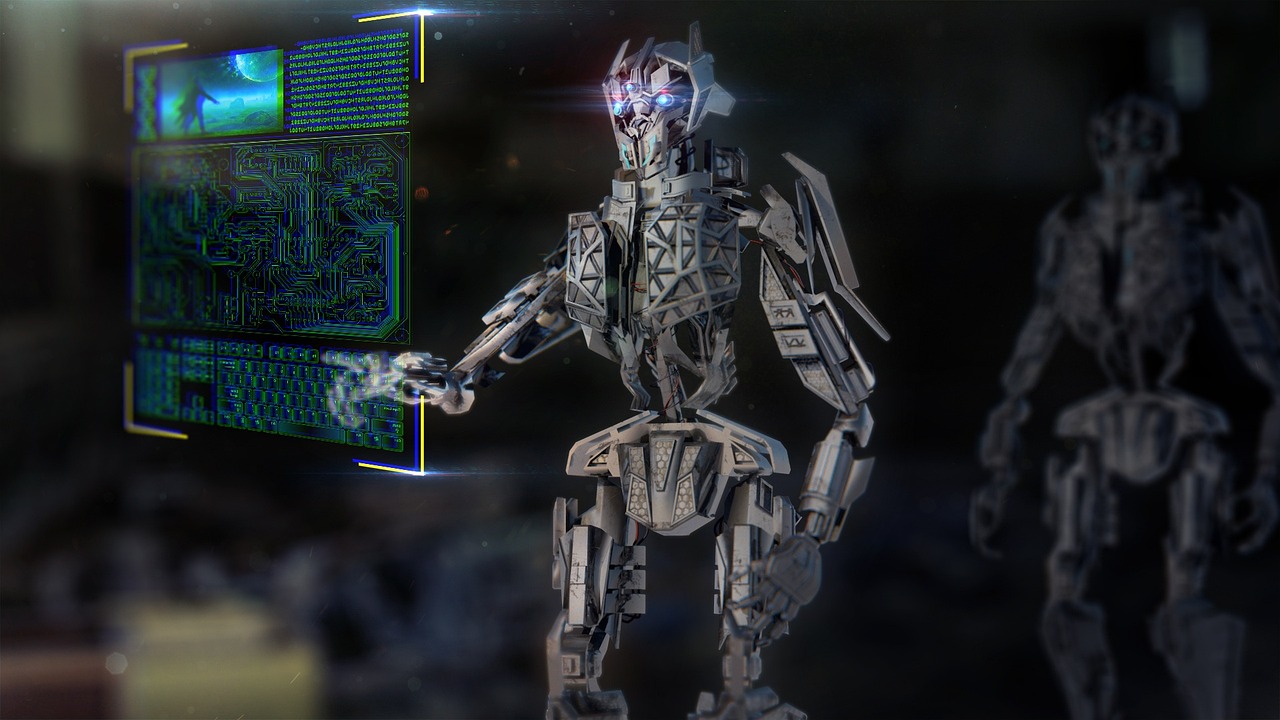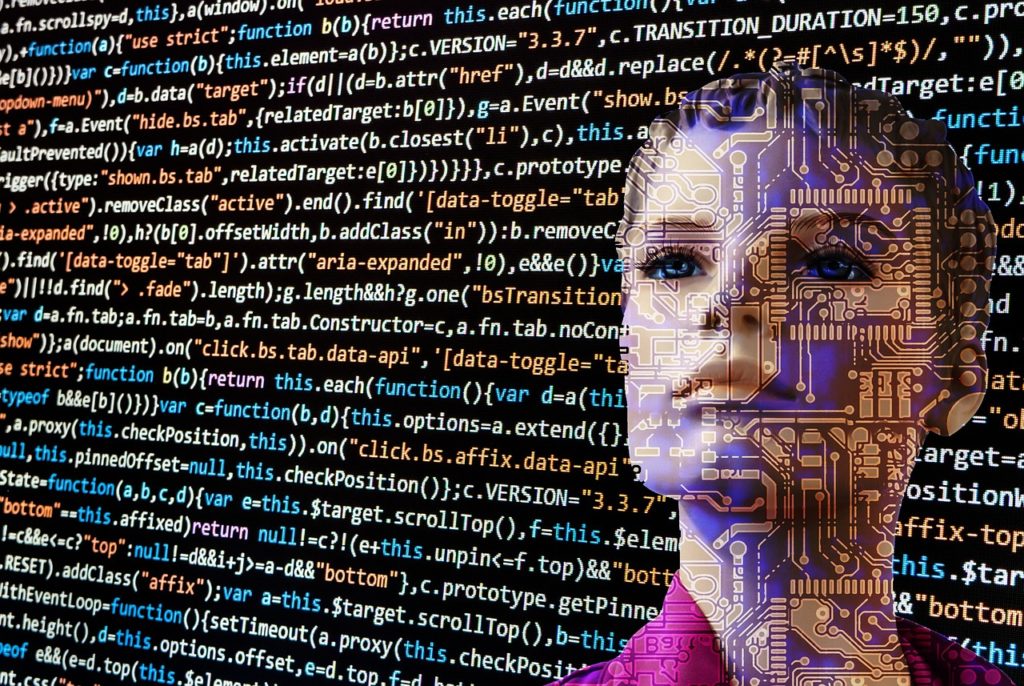With the rapid emergence of ChatGPT, Bard, Bing Chat, and other forms of user-friendly artificial intelligence, the there’s plenty of buzz about the impact AI will have on the job market and the future of work.
But can you trust all the hype?
While it would be easy to speculate about the impacts of artificial intelligence on economic life, it’s still far from clear whether a chatbot could steal your job.
As discussed in a previous post, calling a chatbot like ChatGPT artificially intelligent is a debatable claim. While it’s an excellent example of machine learning, it also comes with some limitations.
That said, it’s services like a chatbot that could automate a variety of mundane tasks in various industries—from manufacturing and healthcare to finance and customer service. This leads us to the question everyone is asking: how might AI-driven automation impact employment in the near future?
The Impact of AI on the Job Market
While AI is likely to have a significant impact on the job market, the possibility of it stealing your job anytime soon is pretty low—at least relative to current anxiety around the issue.
As future of work expert Nahia Orduña has written, automation can often eat up important jobs, but it can also create new ones in the process. As a result, it is likely to change the nature of work, the skills required for different professions, and the way economic life is organized. As Orduña puts it:
The more computers are trained to conduct high-repetitive tasks that are often assigned to entry-level employees, the more roles focused on complex tasks with competitive salaries will arise in their place. This means that young professionals may have a wider range of interesting careers to choose from.
Another way to think about this would be to say that today’s occupations are always evolving. According to a recent report by Goldman Sachs, “60% of workers are in occupations that did not exist in 1940.” In other words, when we focus on automation as a sign of mass unemployment, we fixate on only one piece of what is typically a much larger transformation in economic life.
That said, there are certain industries that will be disproportionately impacted, especially those that involve routine tasks. For example, AI-powered chatbots can answer customer queries and provide support, reducing the need for human customer service representatives. Similarly, AI-powered content creation tools can generate written content, reducing the need for human writers.
On the flip side, this reduction in repetitive work, may make room for a new surge in demand for the development and maintenance of AI-powered systems such as data analysis, programming, and more advanced forms of content development. This would entail a shift towards a much more technologically literate workforce. But it also could mean workers would be free to focus on more creative tasks.
For example, AI can automate data entry, allowing researchers to focus on designing experiments and interpreting results. Similarly, AI-powered content creation tools—like the increasingly popular platform Copy.ai—can free up writers to focus on more creative aspects of content creation, such as ideation and strategy.
Learning with AI
While AI will continue to change the way we work, the ways we choose to prepare for these changes will determine much of our personal and professional success. The good news, however, is that much of this preparation looks a lot like the kind of lifelong learning we discuss on this site.
Here are some basic steps that professionals—and anyone interested in embracing the future, rather than running from it—can take to prepare for the age of AI. (Hint: a growth mindset will take you far!)
Invest in Continuous Learning
While it may seem obvious, continuous learning is essential for staying up to date with any cutting-edge technology and its ripple effects. But what does this look like? Aside from attending events, enrolling in online courses, collaborating with experts, and staying up to date on the latest research, one of the most lasting forms of continuous learning is embedding yourself in a broader community of learners with shared interests. This might look like a MeetUp group, professional association, or some other social gathering. The point is, learning with others is often how we learn best.
Develop Technology Skills
While not everyone needs to be a coder, it’s been clear since well before AI reached its current level that nearly all work is becoming more technology dependent. Consistently investing to boost your technology skills is almost certain to pay off in both the short run and the long run.
Even if you don’t actually want or need to be a programmer, learning some coding skills can help with understand how current technology works and how to troubleshoot simple technical issues. And, of course, there are now tons of options for learning basic coding online. (Check out some of the course providers covered here.)
Basic digital media production is also an area where most of us can benefit from acquiring some basic skills. While this may sound intimidating, it’s really just a fancy way of describing the process of developing any kind of digital content—be it visual art, presentations, videos, manuscripts, animations, audio, and more.
The good news here is that there are more and more sites—like Canva—which provide user-friendly tools for anyone to build whatever content they need. What’s more, getting familiar with this kind of media production may not directly help you understand today’s tech world, but it will certainly help in understanding how much of today’s AI-driven content has as much to do with data visualization as it does pure information.
Cultivate Creativity
While AI-driven chatbots like ChatGPT may be automating a lot of repetitive work, it still requires some kind of input from its users. In other words, the information you share with a chatbot can make or break its helpfulness. Prompts can fall flat without the right wording, or even produce misleading content. For many in the tech world, this places an even higher premium on creativity. The growing profession of “prompt engineers” epitomizes this trend.
So what’s the lesson here? While AI may become a crucial assistant in many workplaces, it will still require those with the creativity and astuteness to ask it the right questions. For anyone out there with an interest in AI-driven trends, creativity is becoming an increasingly sought-after skill.
A New Era of Disruption?
While AI-driven disruption is certainly a trend worth paying attention to in our high-tech world, it remains unclear how disruptive it really will be.
So far, it’s hard to differentiate between real innovation and media buzz. One thing is for sure though: AI is an unprecedented tool for artists, writers, managers, students, and so many others. Ultimately, the key to success in the age of AI will be to remain curious and adaptable.
Image by Computerizer from Pixabay





